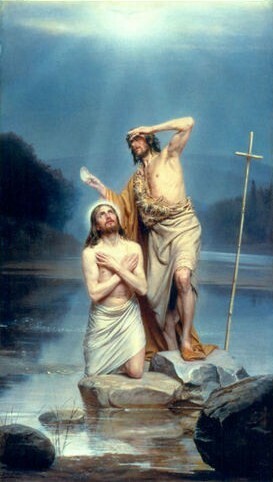III SUNDAY IN ORDINARY TIME: Lk 4:14-21
In the Catholic Church, during the common sundays of this year's liturgical calendar, we are going to read the Gospel of Luke. And Luke reports that Jesus went to Nazareth, at the beginning of his public ministry, and that he presented his manifesto there.
Anointed with the Spirit for the proclamation of the Good News
In the Sabbath liturgy of the Synagogue, Jesus was called to read, and he read a passage taken from the prophet Isaiah:
"The Spirit of the Lord is upon me,
because he has anointed me
to bring good news to the poor.
He has sent me to proclaim release to the captives
and recovery of sight to the blind,
to let the oppressed go free,
to proclaim the year of the Lord's favour." (Is 4:18-19)
Finishing the reading, Jesus proclaimed: "This has been fulfilled today!", assuming the words of Isaiah as his programme. The importance of this passage for the understanding of Jesus and of his work can be recognised by the answer that Jesus gave to John’s messengers who asked him if he was the Messiah or if they should wait for somebody else:
"Go and tell John what you hear and see: the blind receive their sight, the lame walk, the lepers are cleansed, the deaf hear, the dead are raised, and the poor have good news brought to them. And blessed is anyone who takes no offence at me." (Mt 11:4-6)
Jesus brings wholeness to our lives
Jesus came to bring total salvation, which includes the end of oppression and exploitation, the end of suffering and of any kind of handicap, be it physical, mental or social. He came to bring wholeness, establishing a time of grace, reconciliation and peace. By proclaiming "the year of the Lord's favour", Jesus was proclaiming the year of the Jubilee (Lev 25:10), which should be a year of liberation: a year of recognising and affirming one's dignity. God's people must be a free people, and in their midst there should be no oppression and injustice of any kind.
Guided - in his words and actions - by this manifesto, Jesus could truly say:
"Come to me, all you that are weary and are carrying heavy burdens, and I will give you rest. Take my yoke upon you, and learn from me; for I am gentle and humble in heart, and you will find rest for your souls." (Mt 11:28-29).


